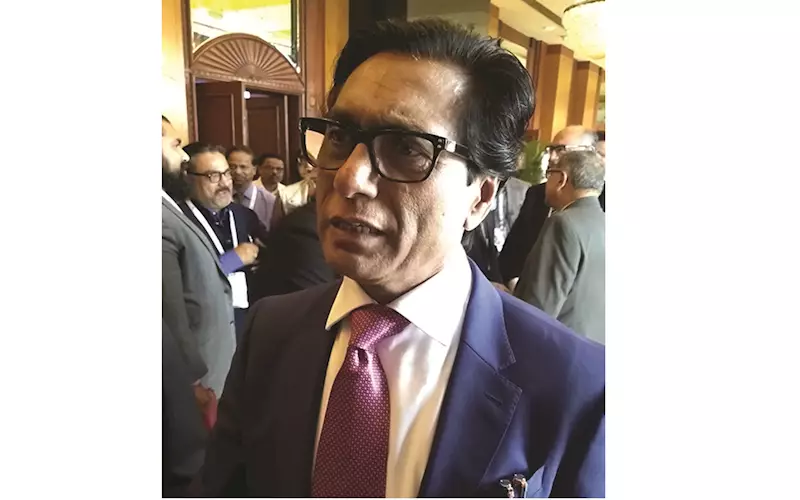We have to establish packaging as a popular career option: Ashok Chaturvedi
The international Summit for Packaging Industry (ISPI) organised on the sidelines of Indiapack Pacprocess 2017 at Hotel Eros, New Delhi on 27-28 October 2017 saw a gamut of dignitaries from the packaging industry discussing the latest trends and technologies of various packaging materials, conversion technologies, packaging machineries with automation to increase the productivity and to reduce the wastage and also to meet the requirement of the packaging user industry to satisfy the demands of m
30 Oct 2017 | By Rahul Kumar
I just came from China. The factory I visited in the country was four hours away from the airport. I and my colleagues did not feel tired after the travel because of the kind of infrastructure China has. There are many Chinese companies in India. There is one Chinese company which is in aseptic packaging for the last two decades. As we are entering into the segment, we visited their plant.
China is not a threat in flexible packaging because Indians are manufacturing the required material and feeding the market. Right now, no major import in flexible packaging from China is happening because quality of Indian manufacturers’ is similar to Chinese material or better.
Flexible packaging got momentum in 1992 when FDI was allowed for the segment. Flexible packaging has the highest growth, somewhere around 6 to 8%, but not in double digit. Government’s support is required for its growth and betterment because right now approximately Rs 50,000 crore edible raw materials go to the waste because of unavailability of packaging.
Everything in this world has been done by human. Kellogg’s, the manufacturer of breakfast cereals, is the best example. How a by-product and waste product became breakfast’s need. And it happened all because of packaging. Many breakfast cereals are coming in pouches nowadays.
Plastic is not unhealthy. It is better to other materials use in packaging. It requires minimum power, stacking place and transportation cost. Plastic is 100% recyclable. We have six recycling facilities in our plants at different locations. We are ready to recycle the plastic if government or some agencies can collect the waste and send it to our facilities. We are open for it. Plastic is the only material where virgin to waste and waste to waste has no issue. It seems that paper is most friendly material but it’s not because manufacturing and recycling of paper consumes huge amount of power and water.
Paper is a supportive material to packaging. Paper is not a really packaging material because it doesn't has barrier properties. Recycled plastic is better than recycled paper. The only thing is education and awareness which can change the perspective of mass. Countries which do not have waste management and awareness have problems with plastic.
Solar energy is very hot segment nowadays and people think that it is green way of energy. But it is not because the kind of energy requires for silica production and transportation cost is huge. We found hydro power is the most green way for energy.
Recently, Government has introduced anti-dumping duty on import of thin aluminium foils from China. Currently India has to depend on other countries for sourcing Aluminium foil which is an important and necessary raw material for a variety of industries in the country. So the businesses here have to necessarily import and pay anti-dumping duty, therefore I make an appeal if this decision could be re-considered.
Many of us are doing innovative packaging and Uflex is at the top in innovative packaging. In next five years we will be in top five globally.
To feed the growing demand of packaging industry, we need bright brains and for that we need more institutes. Obsolete rate is human need. We request to IIP (Indian Institute of Packaging) to open more centres so that more bright brains can come to the industry. Government/educational authorities must upgrade IIP as a university.
We have to establish packaging industry as a popular career option.











 See All
See All